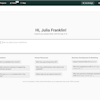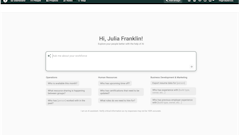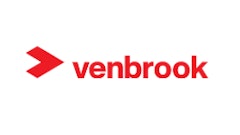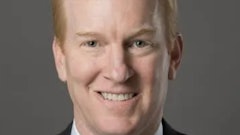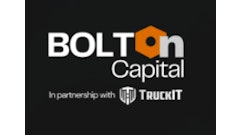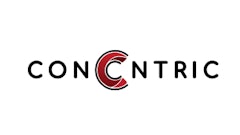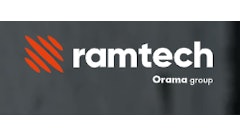NEW YORK, Jan. 27, 2011 /PRNewswire/ -- The latest edition of the PwC U.S. Manufacturing Barometer reports that, overall, optimism about the U.S. and world economies' prospects over the next 12 months is on a major upswing. Trends giving rise to this optimism include stronger revenue forecasts for the respondents' own companies and improved international revenue contributions, as indicated in the findings of the Q4 2010 report.
Looking at the next 12 months, 63 percent of industrial products manufacturers expressed optimism about the U.S. economy's prospects, a sharp rise of 28 points from the prior quarter's 35 percent. This current level of optimism is 16 points higher than a year ago (47 percent), and has not been this high since Q2 2007 (62 percent). Only 7 percent of industrial products manufacturers remain pessimistic, while 30 percent are uncertain. The 12-month outlook for the world economy also improved significantly, with 60 percent of those marketing abroad now optimistic about the world economy's prospects, up 22 points from the prior quarter. Only 2 percent are pessimistic, while 38 percent remain uncertain.
In Q4 2010, the majority (61 percent) of panelists believed the U.S. economy was growing, representing a 34-point increase from the prior quarter. Only 2 percent believed it was declining. Thirty-seven percent believed the U.S. economy did not change from Q3 2010. With regards to international marketers, the majority (67 percent) viewed the world economy as growing in Q4, up 24 points from the prior quarter. Only 3 percent believed it was declining, and 30 percent felt it was unchanged.
"The major shift from uncertainty to optimism in this quarter's findings gives us good reason to be hopeful. We may now begin to see industrial manufacturers start making business decisions in a less guarded, more confident manner as we move into 2011," said Barry Misthal, U.S. industrial manufacturing leader for PwC. "The industry is looking quite strong and steady compared with the past couple of years, and manufacturers appear poised for a robust start to the new year."
For U.S.-based industrial manufacturers that sell abroad, international markets showed notable improvement in the fourth quarter of 2010, with 59 percent reporting an increase in sales, up 15 points quarter-to-quarter, and only 2 percent reporting a decrease. Additionally, the projected contribution of international sales to total revenue over the next 12 months came in at 38 percent, up 2 points from the prior quarter and a 4-point increase over a year ago (34 percent).
For the fourth straight quarter, legislative/regulatory pressures remained the highest-ranking perceived barrier to growth over the next 12 months, at 68 percent, declining 9 points from last quarter. While concern about demand remained high, at 63 percent, two other important potential barriers to growth declined as well, including concern about taxation policies, at 47 percent (down 13 points) and decreasing profitability, at 29 percent (down 11 points). Concern about competition from foreign markets also dropped, from 43 percent to 36 percent. In contrast, concern about lack of qualified workers rose 5 points to a still-limited 13 percent, the largest gain this quarter.
The projected average growth rate for own-company revenue over the next 12 months showed increasing strength, rising to 6.6 percent, up from 5.0 percent last quarter and well over double what it was a year ago (2.7 percent). Eighty-four percent of respondents expect positive revenue growth for their own companies in the year ahead, with 34 percent forecasting double-digit growth (up 16 points), and 50 percent forecasting single-digit growth. Additionally, calendar-year (full-year 2010) own-company revenue growth forecasts rose to a 5.0 percent rate, up from 4.5 percent in the prior quarter.
In the fourth quarter of 2010, gross margins remained positive – up for 34 percent of panelists and down for 19 percent, for a net plus 15 percent, similar to last quarter's plus 17 percent. Costs and prices were both on the rise in Q4. Net costs were up for 26 percent and lower for 15 percent, for a net plus 11 percent. A notable increase was reported on the pricing side, with prices up for 32 percent and down for 11 percent, for a net plus 21 percent (up 14 points) – the first strong sign in recent years of emerging price flexibility and pricing increases.
Over the next 12 months, 48 percent of panelists plan to add employees to their workforce, up 6 points from last quarter and 18 points higher than a year ago (30 percent). Only 2 percent plan to reduce the number of full-time equivalent employees, while half plan to stay about the same. The net workforce projection is plus 1.2 percent, up from 0.4 percent both last quarter and a year ago, a sign of moderate new hiring growth. Of those planning to hire, the most sought-after employees will be professionals/technicians and skilled labor.
Looking at the next 12 months, 82 percent are planning to increase operational spending, led by increases in new product or service introductions (50 percent) and research and development (45 percent). On the rise this quarter is prospective spending for geographic expansion, information technology, and for the first time, Internet commerce. Additionally, plans for M&A remain high (39 percent), and plans for new facilities abroad jumped 9 points to 27 percent.
Importance of Corporate Reputation to Maintain Trust with Key Stakeholders
In Q4 2010, the Manufacturing Barometer incorporated questions to learn about the level of significance that corporate reputation plays in establishing and maintaining trust with key stakeholders. To maintain trust with key stakeholders, corporate reputation will be among the top 10 priorities during the next 3-5 years for 81 percent of those reporting, with 55 percent rating it as a top-five priority. The majority (52 percent) feel trust of key stakeholders is more important now that it has been over the past 2-3 years and none of the panelists thinks it is less important.
Customers were ranked as the stakeholder group with the most increasing importance over the next 3-5 years in maintaining corporate reputation and trust. They were followed by shareholders and employees. One-third of respondents ranked all groups as equally important.
Over the next 1-2 years, 81 percent of panelists cited obtaining third-party verifications or certifications for a company's operations as important in order to improve transparency with stakeholders. Third-party verifications that were ranked with the highest importance include sustainability and corporate responsibility reporting (52 percent) and information security (52 percent).
Additionally, respondents indicated that changes to FASB and IASB accounting standards and environmental regulations would likely have the greatest potential impact on how their business operates over the next 3-5 years. Information security, including intellectual property and personal information protection, was also cited by more than half the respondents as likely to have a major or moderate impact.
About the Manufacturing Barometer
PwC's Manufacturing Barometer is a quarterly survey based on interviews with 62 senior executives of large, multinational U.S. industrial manufacturing companies about their current business performance, the state of the economy and their expectations for growth over the next 12 months. This survey summarizes the results for Q4 2010 and was conducted from October 29, 2010, through January 5, 2011.
To view the complete Manufacturing Barometer report, visit http://www.pwc.com/manufacturing-barometer. For information about other Barometer surveys, including recent economic trend data and topical issues, visit http://www.barometersurveys.com.
About the PwC network
PwC firms provide industry-focused assurance, tax, and advisory services to enhance value for their clients. More than 161,000 people in 154 countries in firms across the PwC network share their thinking, experience, and solutions to develop fresh perspectives and practical advice. See www.pwc.com for more information.
© 2011 PwC. All rights reserved. "PwC" and "PwC US" refer to PricewaterhouseCoopers LLP, a Delaware limited liability partnership, which is a member firm of PricewaterhouseCoopers International Limited, each member firm of which is a separate and independent legal entity.
